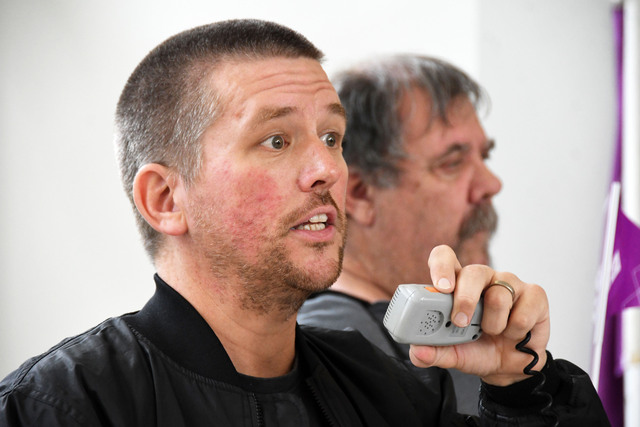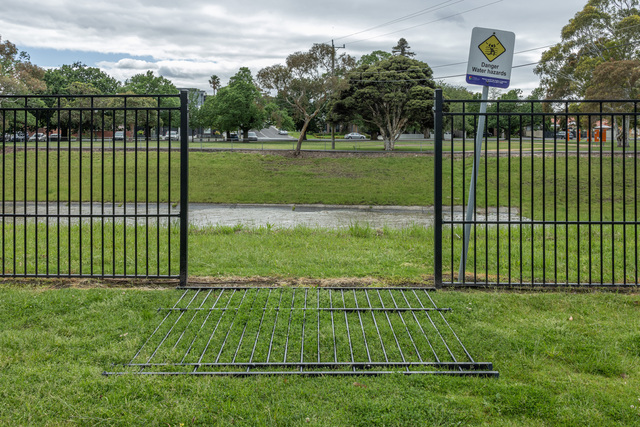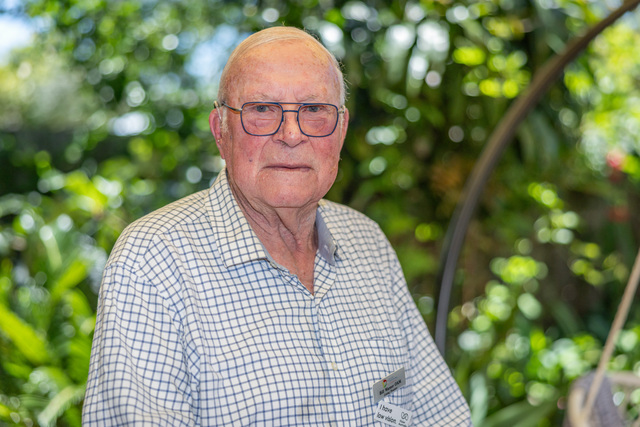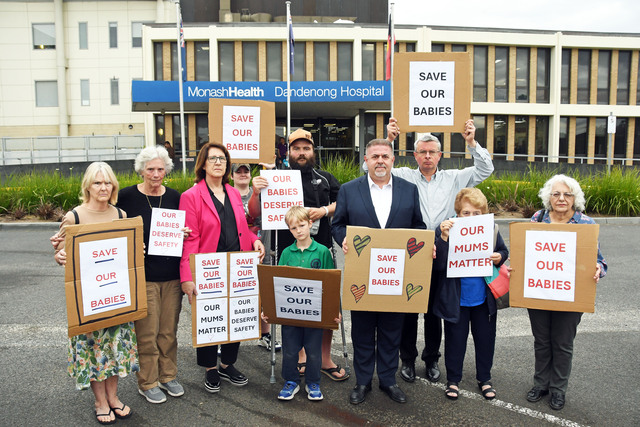The National Tertiary Education Union protest on Tuesday 30 April was more than just an act of disruption and demand for change, but also a demonstration where members and students voiced their alternatives for Federation University’s Future Fed transformation.
The chants of ‘union; power’ echoed throughout building 901’s walls, with NTEU Federation University branch president, Mathew Abbott saying that the protest is to “stand up against the senior management at Fed Uni and call on them to reverse this devastating decision to cut 200-full time equivalent positions from our institution”.
“Staff and students are very angry and distressed about this proposal because we value our university; we value the courses that we teach, the courses students study.
“We value the student support services that help our students succeed, and cutting away 200 FTE [full-time employees] from this institution is going to undermine all of that and so much of what we value,” Mr Abbott said.
The protest is an accumulation of the discontent towards the university’s move to tackle the $79.1 million drop in revenue, with a media release in 22 March detailing that the number of international students fell by 49 per cent between 2019 and 2023.
A more recent media release by the university detailed that their annual report for 2023 was tabled in the State Parliament on Wednesday 1 May, where they stated that the ongoing financial effects of a downward trend in student enrolments had been exacerbated by international student visa arrangements.
However, for Jake Maison, a third-year Bachelor of Arts student, the move by the senior body of the university “just strikes of poor management skills being taken out on the people, not the managerial mess-ups”.
The goal of the protest was “disruption, inconvenience, and generally making their lives harder until they start listening to students and staff because that’s their problem”, he said.
“They behave like a corporation does, and that needs to change because this is an institution, this is a place of education.
“They treat everyone here less like people who can learn and benefit society, and the people who facilitate that learning and more like cash cows,” he said.
The Future Fed transformation is aiming to reach annual cost savings of $20 million in 2024, a move to return to an operating surplus by 2026 – the first step being the invitation of staff to express their interest in a voluntary redundancy process.
“We’re worried about the mistakes that senior management has made in recent years, and it seems pretty clear that they’re intent on making another, major mistake with this proposal.
“We’re calling on them to stop, and we’re calling on them to look into the alternatives that are available, but it’s very important that these cuts are withdrawn,” Mr Abbott said.
He also added that the transformation is not going to be a valid solution to the problem the university aims to tackle, saying that “the cuts they’re proposing are going to make our revenue problems worse by undermining our courses and student support”.
“The policy environment for universities in Australia is shifting right now thanks to the federal government’s [University] Accord process.
“There are two very clear positions in the report which are relevant to Fed Uni, one is that there should be more funding for regional institutions, and the other is that there should be more funding for institutions that enrol a lower SES student cohort.
“Fed Uni stands to benefit greatly from this shift, so cutting positions right now, before that funding comes through, is very premature and irrational,” Mr Abbott said.
Mr Maison said that while every wound takes time to heal, the least the university could do was “stop reopening it”.
“I think a good way to do that is better marketing of the degrees that are available and what you can do with them, because where I come from most people don’t know what an arts degree does.
“It’s also quite frustrating because it’s always the people, the most vulnerable students, students on placement, teachers, casual staff, support staff, IT and all that, that get done over by these poor decisions.
“There needs to be a reshuffle of management – by and large it just seems quite bureaucratic and stone-faced and that’s not what we need, that’s not going to help us,” Mr Maison said.
Federation University’s vice chancellor and president professor Duncan Bentley said that the 2023 annual report “highlights the challenges [the] university and the tertiary education sector face, which are particularly acute for regional universities”.
“This underlines the importance of our Future Fed initiative which will transform the way we operate and ensure we can maintain a strong and sustainable university for future generations,” he said.
The university recorded a net operating deficit of $81 million in 2023, with a one-off impairment of $22.8 million of franking credits which was receivable from Australian Taxation, in turn making the deficit larger than anticipated.
Kelly, a second-year Bachelor of Arts student with a disability, weighed in on the proposed cuts, saying that “the staff at Federation is really important to the student experience”.
“Being a student with a disability, I was really worried about trying to enter university at all, and when I did, I found they were extremely welcoming and supportive, they had a great atmosphere.
“That was key for me as a student to be able to rise to the challenges of my program and do well in my studies – I would hate to see that go away for all students, and I don’t want to lose the ground underneath my feet,” she said.
The media release further added that the university’s priority remains on supporting students and regional and peri-urban communities.
“The significant deficit recorded in 2023 does not impact on our robust plant return to an operating surplus in 2026 which will allow us to boost investment in the student experience, technology, high-quality teaching and research, as well as the expansion of our Co-operative Education Model,” vice-chancellor Bentley said.








